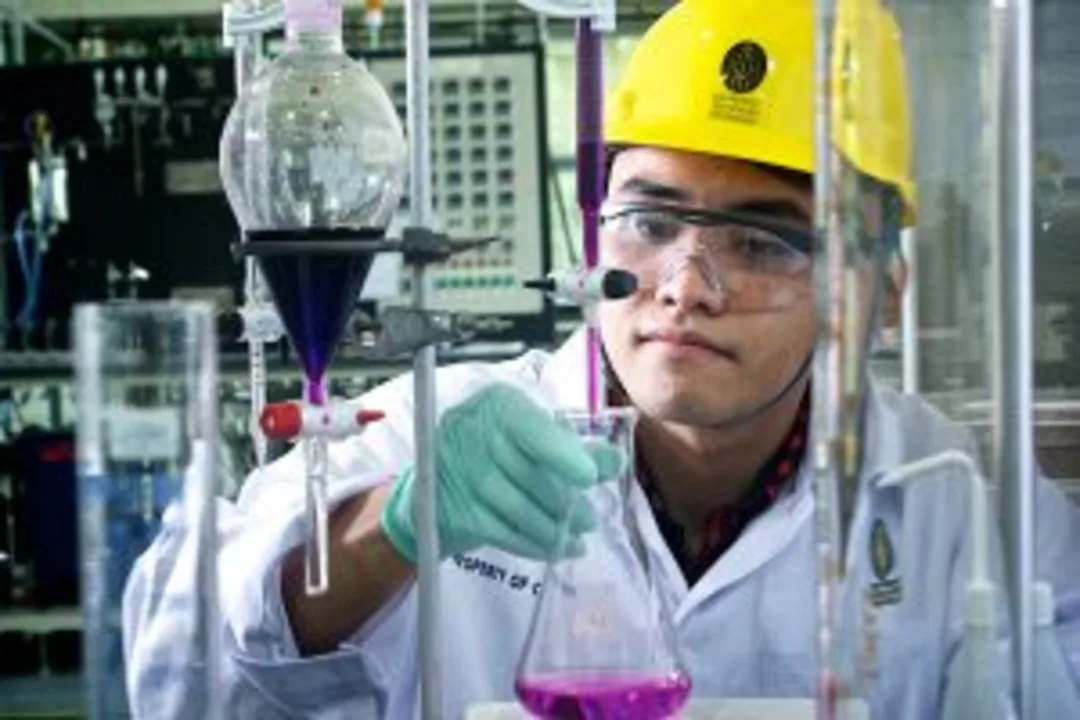Understanding the Role of a Chemical Engineer in Formula 1
As a chemical engineer, one might wonder if it is possible to work in the fascinating and fast-paced world of Formula 1. The answer is yes! Chemical engineers play a crucial role in the development and optimization of F1 racing cars. In this section, we will explore how chemical engineers contribute to the design and performance of these high-speed machines.
Chemical engineers work with a variety of materials, including metals, polymers, and composites, to create lightweight and durable components for F1 cars. They collaborate with other engineering professionals to develop new materials and manufacturing processes that can improve the performance of the car while adhering to strict safety regulations. Chemical engineers also work on fuel and lubricant formulations, ensuring that the cars run efficiently and reliably throughout a race.
Specialized Areas of Chemical Engineering in Formula 1
There are several specialized areas where chemical engineers can make a significant impact within Formula 1. Let's explore some of these areas and how they contribute to the overall success of a racing team.
One of the most critical aspects of an F1 car's performance is its aerodynamics. Chemical engineers play a vital role in developing advanced coatings and surface treatments that reduce drag and improve the car's aerodynamic performance. This involves researching and testing new materials and developing innovative solutions to overcome challenges faced by the team.
Fuel and Lubricant Development
Another essential area where chemical engineers contribute to Formula 1 is in the development of fuels and lubricants. High-performance engines require high-quality fuels and lubricants to optimize their power output and efficiency. Chemical engineers work closely with petroleum companies to formulate fuels that provide maximum performance while minimizing emissions and wear on the engine components.
Furthermore, chemical engineers develop specialized lubricants that reduce friction and wear on the engine and other moving parts of the car. By optimizing the lubrication system, they help to ensure that the car can perform at its best throughout the race.
Collaboration with Other Engineering Professionals
Chemical engineers in Formula 1 work closely with other engineering professionals, such as mechanical, electrical, and materials engineers, to design and develop cutting-edge racing technology. This collaborative environment fosters innovation and enables the team to overcome complex challenges and improve the car's performance.
For example, chemical engineers may collaborate with materials engineers to develop advanced composites that are both lightweight and strong, enabling the car to maintain rigidity while reducing its overall weight. Similarly, they may work with electrical engineers to develop advanced battery systems for hybrid and electric racing cars.
Education and Skills Required for a Chemical Engineer in Formula 1
To work as a chemical engineer in the Formula 1 industry, one must have a strong foundation in chemical engineering principles and possess specific skills and knowledge relevant to the field of motorsports. A bachelor's degree in chemical engineering or a related field is typically required, with some positions requiring a master's degree or higher.
Additionally, experience in the automotive or motorsports industries is highly desirable, as it demonstrates a deep understanding of the unique challenges and requirements of high-performance vehicles. Skills such as materials science, fluid dynamics, and thermodynamics are also crucial in this field, as they allow chemical engineers to develop innovative solutions that improve the performance and reliability of F1 cars.
Final Thoughts: The Exciting World of Formula 1 for Chemical Engineers
In summary, chemical engineers can indeed work in the exciting world of Formula 1, contributing their expertise to the development of cutting-edge racing technology. Their work in areas such as materials development, aerodynamics, and fuel and lubricant formulation plays a crucial role in ensuring the success of the team and the performance of the car.
With a strong educational background, relevant experience, and collaboration with other engineering professionals, chemical engineers can make a significant impact in Formula 1 and enjoy a rewarding career in the motorsports industry.
